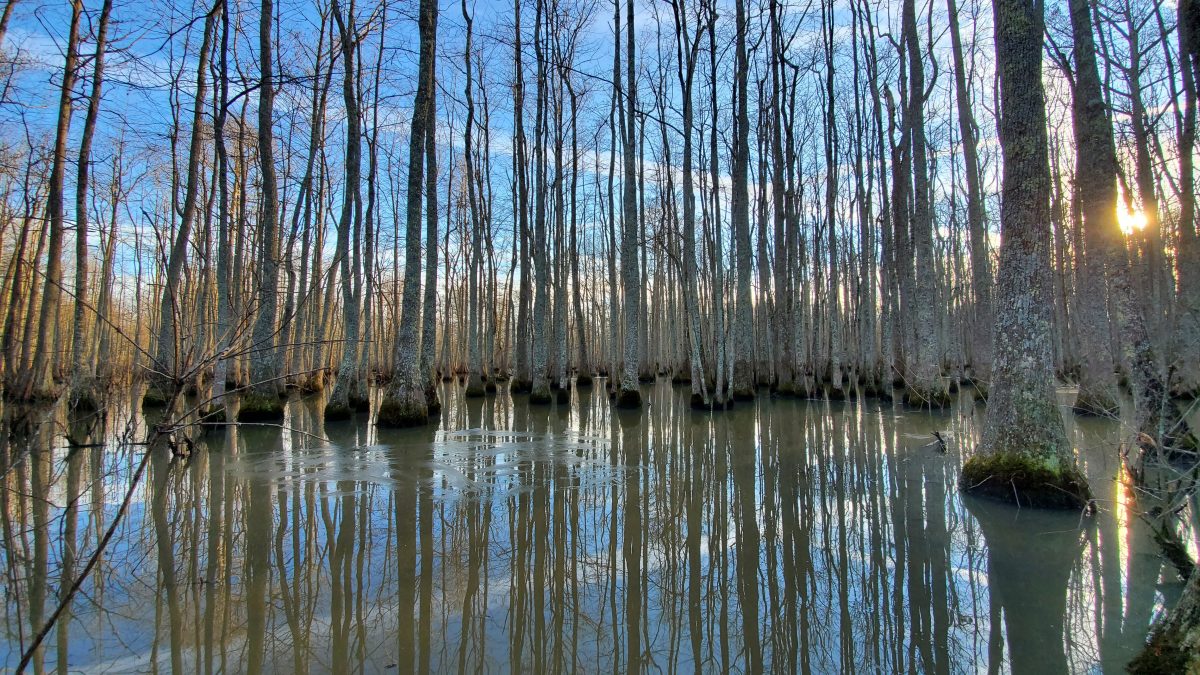The Wolf River Conservancy recently announced that it received a $1 million grant. According to Deb Haaland, U.S. Secretary of the Interior, this grant is “part of a larger, $95 million effort to conserve and restore more than 300,000 acres of important habitats across North America.”
Funding for this grant was made possible by the North American Wetlands Conservation Act (NAWCA), the Migratory Bird Conservation Commission, and the U.S. Fish and Wildlife Service.
“We’ve protected nearly 19,000 acres of land, and we do that in a variety of ways. … conservation easements, where the owner retains ownership, but they are restricted as to what they can do on the property,” says Ryan Hall, director of land conservation for the Wolf River Conservancy. “Also fee simple purchases. A lot of that ends up being public land that is protected forever. Our mission is to preserve and enhance the Wolf River and its watershed. Our land conservation, land protection actions are really what drives that.”
“We’re building out the Wolf River Greenway throughout the city of Memphis. We’re about halfway done, about 14 miles completed out of 26. We’re trying to activate that greenway,” Hall adds.
Hall describes the greenway as a “paved path through the city of Memphis along the Wolf River.”
“Also, at least once a month we do river trips down different sections of the river, so you get to experience different sections of the Wolf from the state of Mississippi and all the way to Downtown Memphis.”
In reference to the Wolf River Conservancy, Steve Cohen, Tennessee District 9 Congressman, stated, “The work they do is transformative, and this NAWCA grant underscores our government’s commitment to organizations that are committed to ensuring the viability of our ecosystems and environment for the future.”
According to the Wolf River Conservancy, “NAWCA is the only federal grant program that is dedicated to the conservation of wetland habitats for migratory birds.”
“It’s money set aside for the purpose of protecting wetlands and adjacent uplands, primarily for migratory bird species,” Hall adds.
“Think of waterfowl that go up and down the Mississippi Flyway. You can also think of anything else that migrates like hummingbirds which go from the Yucatan Peninsula all the way up through the United States into Canada.”
NAWCA funding affects the United States, Canada, and Mexico. While Hall explains that the funding is very robust, it can be quite difficult to obtain one of these grants.
“We went through a pretty rigorous grant application,” Hall explains. “You have to secure a pretty healthy level of match money and we were able to do that with some conservation easements that we protected here recently in Shelby County. We also got some large match partners; for instance the State of Tennessee is a match partner in our grant for $100,000. A couple of years went into the background of putting this all together.”
This is the second time that the Wolf River Conservancy has received this grant, with the first time being in the late ’90s when it received $1 million to protect the Ghost River section of the Wolf. Hall says they are hoping to apply for the end of next year (2023.)
Hall says that the conservancy has recently closed on a property in Piperton, Tennessee.
“It’s beautiful wetlands that recharge the Memphis Sand Aquifer, and it’s going to actually be added into the Wolf River Wildlife Management area, so it’s actually going to become public land,” says Hall.
“That’s the beauty of this NAWCA grant. Not in every case, but in many cases you get to grow protected land, you know that the public can have access to, but also serves wildlife purposes, aquifer recharge purposes, and wetland preservation purposes. That’s the step that we are in now; administering funds to protect lands,” he adds.
The next property on their list is closer to Confluence Park, which is north of Downtown, Hall adds.
For Shelby County specifically, Hall says that there is going to be more protected land.
“The wetlands, particularly in Fayette County, Tennessee, and even further upstream in Benton County, Mississippi, and one of our target properties to protect is in Benton County. So those wetlands have a really close relationship with the Memphis Sand Aquifer.”
Hall explains that the rain filters through wetlands, and in about a week or less recharges the drinking water, “ensuring safe, clean, drinking water that all Memphians like.”
“That’s the biggest impact, even if you never leave your house.”
